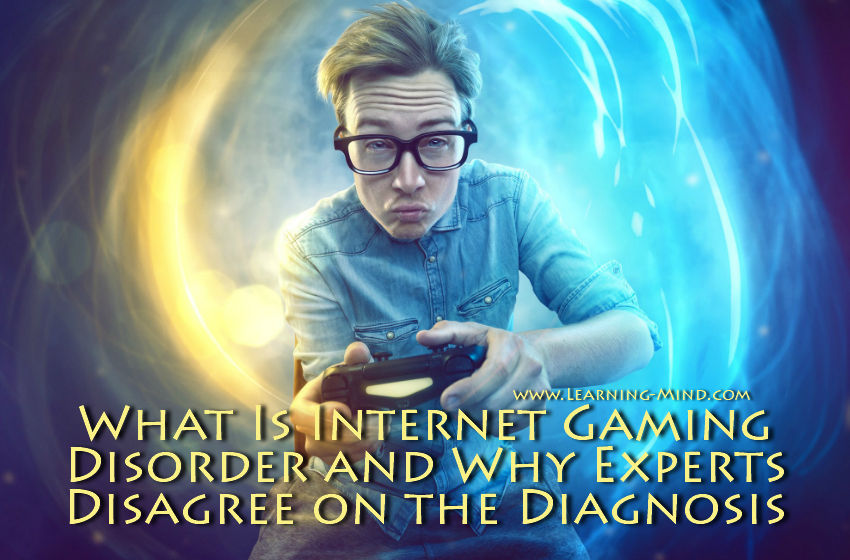
But if we look at the latest edition of the Diagnostic and Statistical Manual of Mental Disorders (DSM-5), we can see there is a concern. In Section III, Internet Gaming Disorder is considered to be serious enough to warrant further investigation.
However, it is not included in the main book as a condition in its own right. But not all health bodies agree with this diagnosis. The World Health Organisation (WHO), included internet gaming with other addictions such as gambling. China and South Korea already recognise it as a problem.
Not only that, but they have treatment programmes available in those countries. Clearly, it’s a contentious issue. So what are the symptoms and why is there such discord amongst experts?
To be diagnosed with internet gaming disorder, a person would have to experience 5 or more of the above symptoms. So why is it so difficult to diagnose?
A 2017 study in the U.S., Canada, the UK, and Germany, asked around 19,000 internet gamers to take part in a survey about their gaming habits. Over 65% reported no adverse symptoms. In fact, only 2.4% admitted to experiencing five or more of the symptoms required to indicate a diagnosis of internet gaming disorder.
Of those that took part, more than 86% of young adults between the ages of 18 – 24 had played internet games with over 65% playing online games. The mix of male and female players was around the same.
However, there is some debate on whether those who experienced 5 or more symptoms of internet gaming disorder actually had a poorer mental, social and physical health. Which is why there is such disagreement about whether it should be called a disorder at all.
Furthermore, researchers believe that only an extremely small percentage of the population is likely to suffer from this disorder. This number is considered to be 0.3 – 1.0% and even then, the criteria is very clear. It depends on whether the person playing internet games feels that their gaming habits are interfering with their real life.
Certain experts in psychology believe caution is key. Patrick M. Markey, Ph.D., and Christopher J. Ferguson, Ph.D., wrote about the 2017 study in the American Journal of Psychiatry:
“This important study suggests that video game addiction might be a real thing, but it is not the epidemic that some have made it out to be.”
However, for those of a certain age who grew up with the first video games that featured a white line representing a tennis bat and a dot for the ball, you might wonder what all the fuss is about. But today’s internet games are a whole different beast altogether.
Not only have the graphics, the music, and the characters improved enormously, but the storylines are now incredibly immersive. Gone are those little white lines. Now you can design your own avatar, run into the screen and create whole new worlds.
No wonder some people find it tempting to remain in the gaming world. But what is this doing to our brains and is it the same as addiction?
Scientists know all about addiction and what happens in the brain. Our dopamine levels rise when we do something that makes us feel good. Some chemicals such as nicotine, alcohol, caffeine and drugs automatically raise these dopamine levels. But there are also actions that can raise them naturally. Like exercising, being in love, or doing something for others.
But recently, researchers discovered that there was something else that raised our dopamine levels. And that was the anticipation of doing something that makes us feel good. Psychologists call this a ‘reward’.
When we anticipate a reward, our feel-good hormones start tingling because we know we are going to shortly get what we desire. And it is this anticipation that scientists believe is behind repeated addictive behaviour.
“We’re perhaps not addicted to the rewarding feelings of dopamine but to the anticipation of dopamine and thus to anything that sustains dopamine levels through that anticipation whether gambling, drugs, sex, or the pursuit of money, power and the religious endpoint.” Robert Sapolsky
The thing is, people do not get addicted to the alcohol they drink, the cigarettes they smoke, the drugs they take, or the games they play on the internet. They are addicted to the dopamine released when they take these substances.
So maybe this can explain why people become addicted, especially to internet gaming. If we are constantly looking forward to our next fix of gaming, we might be on the way to becoming addicted. But isn’t this all scaremongering at what, for many, is simply an enjoyable pastime?
Some believe we should take internet gaming disorder seriously as it could be the result of a graver underlying problem such as depression or anxiety. And we cannot help but read of young adults that have died by excessively playing online games.
One teenager in Russia had broken his leg as played relentlessly for 22 days before his parents rushed him to hospital. He died of a deep vein thrombosis due to not moving around. There are many similar stories.
However, it is a fine balancing act. As a quote in the Proceedings of the National Academy of Sciences puts it:
“Adding video gaming to the list of recognized behavioural addictions could help millions in need. It could also pathologize a normal behaviour and create a new stigma.”
As with most things in life – moderation is key.